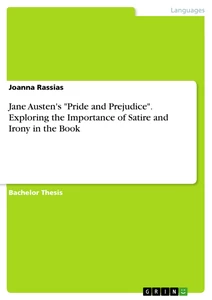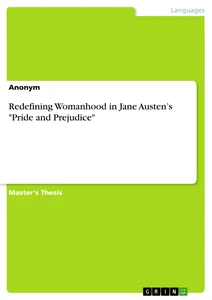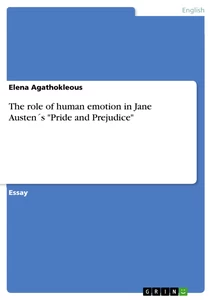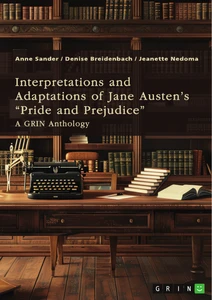<b>[openpublishing template="presentation" get_by_id="594268"] : </b></br>https://api.openpublishing.com/resource/v2/document.594268[:basic,non_academic.realm_genres.*]&cache=yes
<b>[openpublishing template="presentation" get_by_id="1007717"] : </b></br>https://api.openpublishing.com/resource/v2/document.1007717[:basic,non_academic.realm_genres.*]&cache=yes
<b>[openpublishing template="presentation" get_by_id="1494820"] : </b></br>https://api.openpublishing.com/resource/v2/document.1494820[:basic,non_academic.realm_genres.*]&cache=yes
First things first:
- Even though Elizabeth and Mr. Darcy can’t stand each other at first, they end up falling in love.
- There are four weddings throughout the book.
- It covers timeless themes like love, social class, and the complexity of human relationships.
Plot summary
The story begins when the wealthy bachelor Mr. Bingley moves into Netherfield Park, near the Bennet family’s estate. The Bennet family consists of Mr. and Mrs. Bennet and their five daughters, whom Mrs. Bennet is eager to marry off. They attend a ball, where Mr. Bingley takes an interest in the eldest daughter, Jane. Mr. Darcy, his handsome but proud friend, also attends but refuses to dance with the second eldest, Elizabeth. Elizabeth finds Darcy arrogant and unlikable, while Darcy, despite his reservations, becomes increasingly attracted to her. Following the ball, Jane falls ill during a visit to Netherfield Park, leading Elizabeth to stay with her.
When the sisters return home, they meet Mr. Collins, a clergyman, cousin of Mr. Bennet, and heir to the Bennet estate. He is a very unpleasant, pompous person who likes to give long eulogies about his patroness Lady Catherine de Bourgh. Although the Bennet sisters are averse to him, he proposes to Elizabeth, who quickly rejects him. Shortly after, he proposes to Elizabeth’s friend Charlotte Lucas, who accepts due to her age (27) and desire for financial stability. Meanwhile, the Bennet sisters befriend local militia officers, including the charming Mr. Wickham. He and Elizabeth get along well, and he tells her that Darcy cheated him out of his inheritance. Over the winter, the Bingleys and Darcy move to London, and Jane’s hopes for a marriage with Bingley fade. Elizabeth learns that Darcy encouraged this separation.
In the spring, Elizabeth visits the newly-wed Collins and meets Lady Catherine de Bourgh, Darcy’s aunt. Darcy unexpectedly shows up and, after several visits, proposes to Elizabeth. His proposal, however, is a disaster—he insults her family and social status, stating he’s fallen for her despite his better judgment. Furious, Elizabeth rejects him, accusing him of sabotaging Jane’s relationship and cheating Wickham out of his inheritance. Darcy leaves, but soon after, he gives Elizabeth a letter explaining his actions. He claims he advised Bingley against Jane because he thought her feelings were shallow. As for Wickham, Darcy reveals he’s a liar who gambled away his inheritance and once tried to elope with Darcy’s 15-year-old sister, Georgiana. Elizabeth begins to question her initial judgment of Darcy, realizing her own pride and prejudice.
Meanwhile, the militia leaves, and Lydia, the youngest Bennet sister, convinces her father to let her spend the summer near the soldiers. Elizabeth goes on another trip, this time with her aunt and uncle, the Gardiners. They visit Darcy’s estate, Pemberley, which Elizabeth agrees to see only after learning Darcy isn’t there. She’s impressed by the house and staff, who praise Darcy. To her surprise, Darcy appears and is unexpectedly polite and friendly, unlike his previous behavior. But soon, Elizabeth learns that Lydia has eloped with Wickham, prompting her and the Gardiners to return to the Bennet household. Luckily, Darcy secretly pays a large sum to convince Wickham to marry Lydia.
With the scandal resolved, Bingley and Darcy return to Netherfield, and Bingley finally proposes to Jane, who happily accepts. Lady Catherine later visits the Bennets, demanding that Elizabeth promise never to marry Darcy, as she has plans for him to wed her daughter. Elizabeth refuses, saying she won’t sacrifice her happiness. Lady Catherine’s report of Elizabeth’s defiance gives Darcy hope, and he proposes again. This time, they both admit their feelings and informally agree to marry. In the end, both Jane and Mr. Bingley and Elizabeth and Mr. Darcy marry.
The main characters

Elizabeth Bennet
- Protagonist of the novel
- Second eldest Bennet daughter
- Smart and sharp-witted, the most intelligent and sensible of the five sisters
- Well-read and quick-witted
Fitzwilliam Darcy
- Very wealthy
- Intelligent and honest, but also very proud
- Legal guardian of his 15-year-old sister, Georgiana
Charles Bingley
- Darcy’s best friend
- Very wealthy
- Kind, well-meaning and uncomplicated
Jane Bennet
- Eldest and prettiest Bennet sister
- Reserved and gentle, and a bit naïve
- Always sees the good in people
George Wickham
- Son of an estate manager, godson to Darcy’s father
- Officer in the militia
- Good-looking and charming
Lydia Bennet
- Youngest Bennet daughter
- Reckless and headstrong
- Loves socializing, and flirts with the officers and soldiers
William Collins
- Clergyman
- Bennet’s cousin
- Heir to the Bennet estate
- Dependent on his patron, Lady Catherine de Bourgh
- Prone to long, tiresome speeches
Why is “Pride and Prejudice” such a timeless classic?
Austen addresses many timeless themes in her book that remain relevant today, such as love, social status, and interpersonal relationships. The characters’ development over the course of the book also makes them particularly memorable and relatable. Elizabeth begins with a strong conviction in her ability to read people and, as a result, forms judgments about others quite quickly. However, she is repeatedly forced to question this mindset. Her character is especially interesting, as she doesn’t fit the typical mold of a heroine in literature of that time; instead, she is highly independent, clever, and quick-witted. She turns down two marriage proposals from men who would both be financially advantageous matches for her, as she places her own happiness above all else.
Yet, Austen also acknowledges that not every woman had this privilege, as illustrated by Charlotte Lucas, who marries Mr. Collins. Charlotte views him as her best option for a comfortable life, which was hardly feasible for single women at the time. Additionally, Pride and Prejudice stands out for its satire and humor, carried largely by exaggerated characters like Mr. Collins and by Elizabeth’s wit and self-confidence. The story parodies social norms and behaviors, which continues to amuse readers to this day. Lastly, it is worth noting that the novel is not only a contemporary study of English society at the beginning of the 19th century but also a beautiful love story that, despite misunderstandings and misplaced judgments, ultimately prevails.
Our recommendations:
You can also find different interpretations of “Pride and Prejudice” in our anthology on this topic:
Frequently asked questions
“Pride and Prejudice” tells the love story between Elizabeth Bennet and Mr. Darcy. At first, the two can’t stand each other, but despite misunderstandings and prejudices, their relationship develops and both realize their true feelings for each other.
The novel deals with timeless themes like love, social class, prejudice, and women’s self-discovery. The witty, independent heroine Elizabeth Bennet and Austen’s humorous social critique keep it relevant today.
The main characters are Elizabeth Bennet, an intelligent and independent woman, and Mr. Darcy, a wealthy but proud man. Other important characters are Jane Bennet, Mr. Bingley and the scheming George Wickham.
Do you like our magazine?
Then sign up for our newsletter now!




